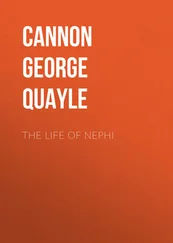George Gibbs - The Love of Monsieur
Здесь есть возможность читать онлайн «George Gibbs - The Love of Monsieur» — ознакомительный отрывок электронной книги совершенно бесплатно, а после прочтения отрывка купить полную версию. В некоторых случаях можно слушать аудио, скачать через торрент в формате fb2 и присутствует краткое содержание. Жанр: foreign_prose, foreign_language, на английском языке. Описание произведения, (предисловие) а так же отзывы посетителей доступны на портале библиотеки ЛибКат.
- Название:The Love of Monsieur
- Автор:
- Жанр:
- Год:неизвестен
- ISBN:нет данных
- Рейтинг книги:3 / 5. Голосов: 1
-
Избранное:Добавить в избранное
- Отзывы:
-
Ваша оценка:
- 60
- 1
- 2
- 3
- 4
- 5
The Love of Monsieur: краткое содержание, описание и аннотация
Предлагаем к чтению аннотацию, описание, краткое содержание или предисловие (зависит от того, что написал сам автор книги «The Love of Monsieur»). Если вы не нашли необходимую информацию о книге — напишите в комментариях, мы постараемся отыскать её.
The Love of Monsieur — читать онлайн ознакомительный отрывок
Ниже представлен текст книги, разбитый по страницам. Система сохранения места последней прочитанной страницы, позволяет с удобством читать онлайн бесплатно книгу «The Love of Monsieur», без необходимости каждый раз заново искать на чём Вы остановились. Поставьте закладку, и сможете в любой момент перейти на страницу, на которой закончили чтение.
Интервал:
Закладка:
Monsieur Mornay bowed.
The door of the room opened suddenly and Captain Ferrers entered. A look of bewilderment was on his features as he glanced at Mistress Clerke.
“Why, Barbara – these men without – What – ?” Monsieur Mornay had turned his head, and the flowing curls no longer hid his countenance.
“I was expecting you, Capitaine Ferraire,” said the Frenchman.
Ferrers stepped back a pace or two, astonishment and consternation written upon his features. Had Sir Henry Heywood come back to life, the Captain could not have been put into a greater quandary. He looked at the Frenchman and then at Mistress Clerke for the solution of the enigma. But Mistress Barbara had sunk upon the couch in an agony of fear. A moment before she had prayed for this interruption. Now that it had come she was in a terror as to its consequences. She made no reply, but looked at the two men who stood a few feet apart with lowering looks – the Englishman flushed red with anger, the Frenchman cool, impassive, dangerous.
Ferrers spoke first. He stepped a pace or two towards the Frenchman, his brow gathered, his shoulders forward, menace in every line of his figure.
“You have dared to force your way into this house?”
The elbow was bent and the fist was clinched, and an exclamation burst from Mistress Barbara, who was gazing horror-struck at the impending brutality. But the Frenchman did not move. The only sign of anything unusual in his appearance was the look in his eyes, which met those of the Englishman with an angry glitter of defiance. If Ferrers had meant personal violence to the Frenchman, he did not carry out his intentions. He cast his eyes for a moment in the direction of Mistress Barbara, and then, drawing back again with a muttered exclamation, made straight for the door. Before he could place his hand upon the knob Mornay interposed.
“One moment, Ferraire. My men were told to let you in — not to let you out.” And as Ferrers paused a moment, “Have patience, Monsieur le Capitaine. Presently I will leave madame and you; but first you must listen.” Ferrers had grown white with rage, and his hand had flown to his sword hilt. He looked at the quiet figure of the Frenchman and at Mistress Barbara, whose eyes were staring at him widely. He bit his lip in chagrin, and then struggled to control his voice.
“Your reckoning is not far distant, Monsieur Mornay,” he said, hoarsely. “If there is justice in England, you shall hang this day week.”
CHAPTER V
INDECISION
Mornay waited while the Englishman smothered his rage. Then, with a sudden motion, he brushed his kerchief across his temples, as though to wipe the clouds from his forehead.
“If madame will but bear with my brutality a little longer” – he smiled – “a little longer – then she will have done with me forever.” The gesture and the air of contrition were rather racial than personal characteristics. But, as one sometimes will in times of great stress, Mistress Barbara could not but compare Mornay’s ease and sang-froid with the heavy and somewhat brutal bearing of Captain Ferrers. She hated herself for the thought, and, as Monsieur Mornay spoke, turned her face resolutely to the window and away from him.
“If madame will remember what I have had the honor to tell her, she will now discover how Monsieur Ferraire becomes concerned.” He glanced at Ferrers, who stood to one side, his arms folded, his features sullen and heavy with the impotence of his wrath. The Frenchman was playing a desperate game, with every chance against him. To unmask the secret, he must take the somewhat heavier Englishman off his guard. Of one thing he felt sure, Ferrers knew little more as to the papers than did Cornbury and himself. He began abruptly, without further preface:
“Madame has just learned from my lips of certain matters, Monsieur le Capitaine, which bear strongly upon her interests in the estate of Bresac. She has yet to learn how much a part of it all you have become. She has been told of the fortunes of Eloise d’Añasco and of the rightful heir to the estates. What she wishes most to learn is the contents and purport of the papers in your possession.”
Mornay had spoken slowly, to give force to his words, and the effect of his information upon Ferrers was remarkable. The lowering crook came out of his brows, and his hand made an involuntary movement to his breast, the fingers trembling a moment in the air. His face relaxed like heated wax, and he stared at the Frenchman, his mouth open, the picture of wonderment and uncertainty.
Mistress Clerke, who had been about to speak, paused bewildered. Ferrers stammered awkwardly, as though gathering his wits for a reply.
“The papers!” he gasped at last. “The papers!” And then with a futile attempt at sang-froid, “What papers, monsieur?”
If the Englishman had not been so completely off his guard he would have seen a flash of triumph in the Frenchman’s eyes. Mornay narrowly watched his discomfiture; then continued, quietly:
“Monsieur le Capitaine Ferraire, René d’Añasco has been found. The son of Eloise de Bresac has come to life and is to-day in London. He knows of the sale of his birthright. He has discovered the proofs of his mother’s marriage and of his birth at Amiens. He but awaits a favorable opportunity to bring the matter before a court.” By this time Captain Ferrers had recovered a certain poise. He swaggered over to the mantel, where he turned to Mistress Clerke.
“A fine tale!” he sneered. “A pretty heir, Mistress Barbara, to send a hunted man as his ambassador.” Then the presence of Cornbury at the dying confession came to his memory, and the situation dawned upon him for the first time. He laughed aloud with real blatant merriment.
“I see!” he cried. “It is you — you , Mornay, the outcast – Mornay, the broken gambler, the man without a creed or country, who is now become the Vicomte de Bresac. It is a necromancy worthy of Dr. Bendo.”
He was firm upon his feet again. The very absurdity of the claim had restored his heavy balance – somewhat disturbed by the announcement of his possession of the papers. He turned to Mistress Clerke and found her eyes, full of wonder and inquiry, still turned upon him. She was sensible of an influence which the Frenchman’s words had wrought, and felt rather than saw the surprise and alarm which underlay the somewhat blustery demeanor of Captain Ferrers. During the dénouement not a word had passed her lips. When she had tried to speak it seemed as though she had been deprived of the power. She had sat looking from the one to the other, fear and doubt alternating in her mind as to the intentions of the Frenchman. What did it all mean? Captain Ferrers, at the best of times, was not a man who could conceal his feelings; but why had he lost countenance so at the mention of papers? Why had he not done something at the first that would prove the Frenchman the cheat and impostor that he was? Why did the irony of his words fall so lightly upon the ears of Monsieur Mornay that he seemed not even to hear them? Why were the Frenchman’s eyes so serious, so steady, so clear to return her gaze? With an effort she slowly arose, struggling against she knew not what – something which seemed to oppress her and threaten the freedom of her speech and will. A feeling that she had allowed herself, if even only for a moment, to be influenced against her better judgment, filled her with resentment against this man who had broken past her barriers again and again, and now offended not only the laws of society but the laws of decency by brutally pushing past her servants and holding her against her will a prisoner in her own apartments. As she stood upon her feet she regained her composure, and when she spoke her voice rang with a fearlessness that surprised even herself. It was the exuberance and immoderation of fear – the sending of the pendulum to the other end of its swing.
Читать дальшеИнтервал:
Закладка:
Похожие книги на «The Love of Monsieur»
Представляем Вашему вниманию похожие книги на «The Love of Monsieur» списком для выбора. Мы отобрали схожую по названию и смыслу литературу в надежде предоставить читателям больше вариантов отыскать новые, интересные, ещё непрочитанные произведения.
Обсуждение, отзывы о книге «The Love of Monsieur» и просто собственные мнения читателей. Оставьте ваши комментарии, напишите, что Вы думаете о произведении, его смысле или главных героях. Укажите что конкретно понравилось, а что нет, и почему Вы так считаете.












